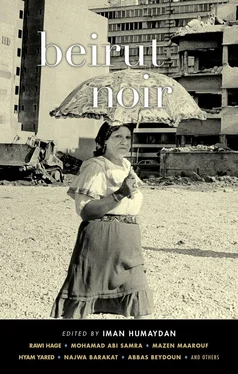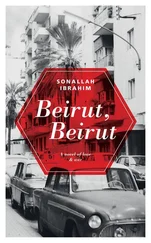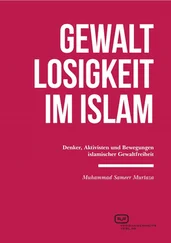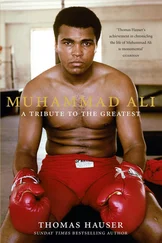Muhammad Abi Samra - Beirut Noir
Здесь есть возможность читать онлайн «Muhammad Abi Samra - Beirut Noir» весь текст электронной книги совершенно бесплатно (целиком полную версию без сокращений). В некоторых случаях можно слушать аудио, скачать через торрент в формате fb2 и присутствует краткое содержание. Город: New York, Год выпуска: 2015, ISBN: 2015, Издательство: Akashic Books, Жанр: Детектив, на английском языке. Описание произведения, (предисловие) а так же отзывы посетителей доступны на портале библиотеки ЛибКат.
- Название:Beirut Noir
- Автор:
- Издательство:Akashic Books
- Жанр:
- Год:2015
- Город:New York
- ISBN:978-1-61775-344-2
- Рейтинг книги:3 / 5. Голосов: 1
-
Избранное:Добавить в избранное
- Отзывы:
-
Ваша оценка:
- 60
- 1
- 2
- 3
- 4
- 5
Beirut Noir: краткое содержание, описание и аннотация
Предлагаем к чтению аннотацию, описание, краткое содержание или предисловие (зависит от того, что написал сам автор книги «Beirut Noir»). Если вы не нашли необходимую информацию о книге — напишите в комментариях, мы постараемся отыскать её.
Most of the writers in this volume are still living in Beirut, so this is an important contribution to Middle East literature — not the “outsider’s perspective” that often characterizes contemporary literature set in the region.
Beirut Noir — читать онлайн бесплатно полную книгу (весь текст) целиком
Ниже представлен текст книги, разбитый по страницам. Система сохранения места последней прочитанной страницы, позволяет с удобством читать онлайн бесплатно книгу «Beirut Noir», без необходимости каждый раз заново искать на чём Вы остановились. Поставьте закладку, и сможете в любой момент перейти на страницу, на которой закончили чтение.
Интервал:
Закладка:
Every time he tells it to me, the story makes him cry, as though he doesn’t want to forget how on that road women were raped, others were tortured, until almost all of them perished in one way or another. Or how the Kurdish and Turkoman tribes joined the Ottoman soldiers in torturing the Armenians. So that in roughly a year, no less than a million Armenians were killed — that is to say, half of the Armenians living in the shadow of the Ottoman Empire. Abu Harut would tell me that the Turks, despite the abomination of this tragedy, didn’t recognize the murder of more than three hundred thousand people and refused to admit that this operation had been planned, intentionally and resolutely.
In any case, arranging a place for us to live was not difficult for Abu Harut. My father had money and some savings, enough for us to not need support from anyone else, and moreover he could get a license to use the Honda as a taxi.
No shape before me was clear, everything seemed like a mirage, an unreal world covered by a thick blue fog, which I carried with me from my village between the mountains and the plains. At this time, the houses in Beirut would empty and fill with people in strange ways, sometimes without good reason. Areas had not yet become definitively entrenched or their sectarian identities absolutely clear. But the singularity of Bourj Hammoud — where Abu Harut and his family had lived from the time his father had come to Lebanon, and whose landmarks are preserved in my memory and my heart — was reflected in its houses, alleys, and markets, populated by large families, most of whom the war couldn’t budge from the property they owned, despite all of the displacement happening in Lebanon. Shops and pharmacies were spread throughout their neighborhoods, carrying the names of their home regions in Armenia in two languages — Armenian and Arabic — reflecting their attachment to their mother tongue and an identity that had not faded away in its owners’ souls, despite the passage of time. What was notable was that the people of Bourj Hammoud’s refused to be grouped within a special segregated “ghetto,” off-limits to others. I heard Abu Harut speak disapprovingly about this, stressing, “We will never form a closed society, this region of ours reflects a model of coexistence between different sects, and this naming — ghetto — advances political goals. Look, Abu Majd, look next door to the Armenian shops and you’ll find Muhammad’s shop, Joseph’s shop, or Sacco’s...”
That area has its own special scent; I can still almost smell the fragrant mix of hot spices which flavored their delicious food, and hear Harut’s voice in my ear saying cheerfully, “There are many kinds of food which we brought to the Lebanese that they like — sujouk and basterma — just as we took tabbouleh, kibbe, and stuffed vine leaves from them.” He saw a kind of fusion and reciprocity in this. He followed up, imitating his father: “We took hospitality and generosity from you, baba, and you took from us many kinds of arts and crafts, like jewelry and shoemaking... and don’t forget fixing watches, baba, ha ha ha!”
But the Armenians are so distinguished by their “broken” Arabic that this became a general way for Lebanese people to refer to Armenians, since most of the elderly people from Armenia would masculinize the feminine and feminize the masculine, and squeeze the word baba into their speech, a sign of affection perhaps.
After visiting many apartments, my father chose one in a building that was modern, relative to the other houses and buildings nearby. It wasn’t located in Bourj Hammoud or deep inside it — on the al-Nabaa side, for example. It wasn’t even in Doura, an area bordering it and stretching out from the coast to the Northern Metn. It was along the big highway from which we could see Karantina and, in the blink of an eye, the “West Side” of the capital at the time. So were we really on the “East Side”? I don’t know because on the right side there was a little old mosque which worshippers frequented all the time, as well as that modest church with its round domes on the north side. The building was located right between them and even the news reports — from radio or television stations, which we started to follow when bombardments on our area intensified — weren’t able to determine once and for all which area this building that Amer chose as the location for our new home belonged to.
I couldn’t count the number of explosions that had gone off and bombs that had fallen, either on people or on buildings, when we found ourselves on the threshold of our alleged youth. That’s how we used to measure our lives in Beirut, not in years at all. Some of us, when we wanted to remember happy or sad things, started to connect them to an endless, bloody series: the War of the Souqs, Tel al-Zaatar, the Battle of the Hotels, the murder of Bachir Gemayel, the entry of the Deterrent Force, the Hundred-Day War on Ashrafieh by the Syrian army, the Mountain War, the War of the Camps, the Israeli invasion... Sabra and Shatila... There was no need to count the years here, as I said, our lives were made of gunfire, random bullets shot by depraved snipers.
However, our days were not free from periods when there were truces, long ones sometimes, and then we would forget that this multifaceted Lebanese War, which never held to a fixed stance on anything, hadn’t yet finished and had itself forgotten that it hadn’t yet come to an end. This perhaps goes back to the fact that from our childhood it was a reality that peace had merely become a word — always tenuous and elusive — and if it were able to prevail here one day, it would seem artificial. Despite this, I didn’t neglect my studies. Indeed, I was actually working hard and Harut nicknamed me “The Genius.” But on summer vacation I would fulfill my violent desire to discover everything. Entertainment began in the cinemas and Harut and I would move around between the Sevan, Carminique, Arax, Florida, and Canar (theaters with the names of Armenian towns and villages) to choose what suited our mood: westerns, documentaries, horror flicks, romantic comedies, and adventures. We wouldn’t hesitate to leave a film at the beginning if we heard people whispering that another cinema was showing an exciting sex movie.
My talent in the subjects of science and mathematics became evident. My head worked like a little computer, absorbing information, memorizing numbers, and solving problems effortlessly. I used to help Harut with his lessons and he would repay me by letting me into the depths of his Armenian world, boasting about me in front of his comrades in “the Party” — that I was the only one able to disassemble a Kalashnikov and put it back together again in seconds, that I was also the only one who memorized the names of the explosives found in shells and bombs, like the back of my hand, and that I could make hundreds from it if I wanted to... I was his friend and his treasure and he was my only friend who I was proud of, so I didn’t refuse when he asked me to join the party. This ensured I would stay with him and accompany him on the local neighborhood security patrols and surveillance in the area.
Before the war broke out there were Armenian leaders and strongmen too, who ruled streets and neighborhoods with a tight grip, just like the prominent Lebanese ones who became famous. However, the war dampened their fires, put an end to their roles and their near-mythical legends. New leaders and strongmen took their place, imposing a military reality under the influence of armed parties and militias.
The neighborhood, home to so many Armenians, remained for the most part distant from the thunder of bombs and exchange of incursions, which the combatants undertook to seize strategic buildings and areas beyond those already under their control. But no matter how it was contained, the sparks of the war would undoubtedly escape from time to time, afflicting many people’s hearts with greed in the absence of both law and the authority of the state. But the Party, as Harut said, was ready and able to impose its will, with a kind of autonomous governance and stringent reverence, so that things wouldn’t “get out of control,” as was happening in other regions of Lebanon. Behind an old government building, Harut took me to see this one night; he showed me with my own eyes how the death penalty was implemented for hooligans, anyone tempted by heroics or who strayed from the will of the party and obedience to it.
Читать дальшеИнтервал:
Закладка:
Похожие книги на «Beirut Noir»
Представляем Вашему вниманию похожие книги на «Beirut Noir» списком для выбора. Мы отобрали схожую по названию и смыслу литературу в надежде предоставить читателям больше вариантов отыскать новые, интересные, ещё непрочитанные произведения.
Обсуждение, отзывы о книге «Beirut Noir» и просто собственные мнения читателей. Оставьте ваши комментарии, напишите, что Вы думаете о произведении, его смысле или главных героях. Укажите что конкретно понравилось, а что нет, и почему Вы так считаете.












